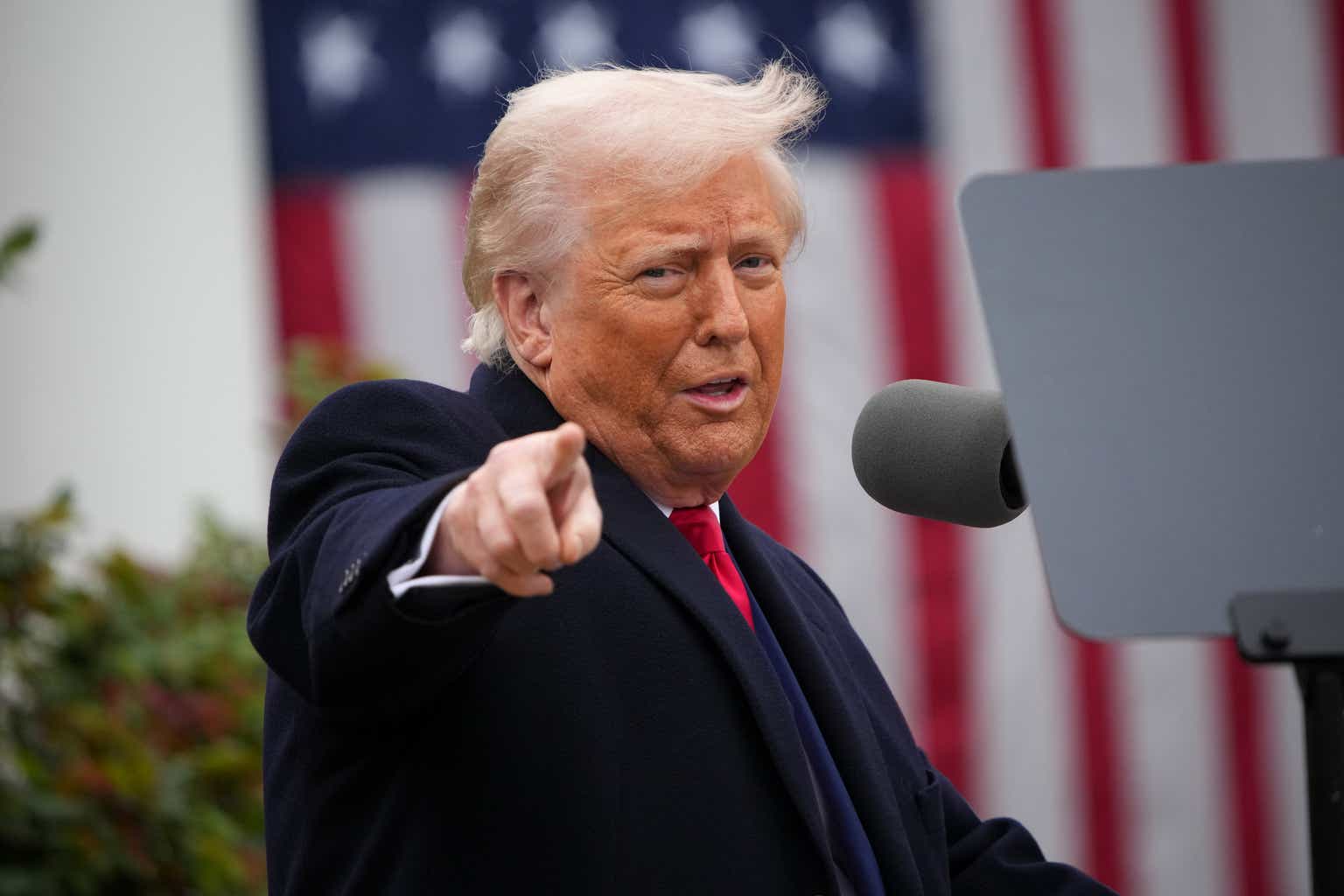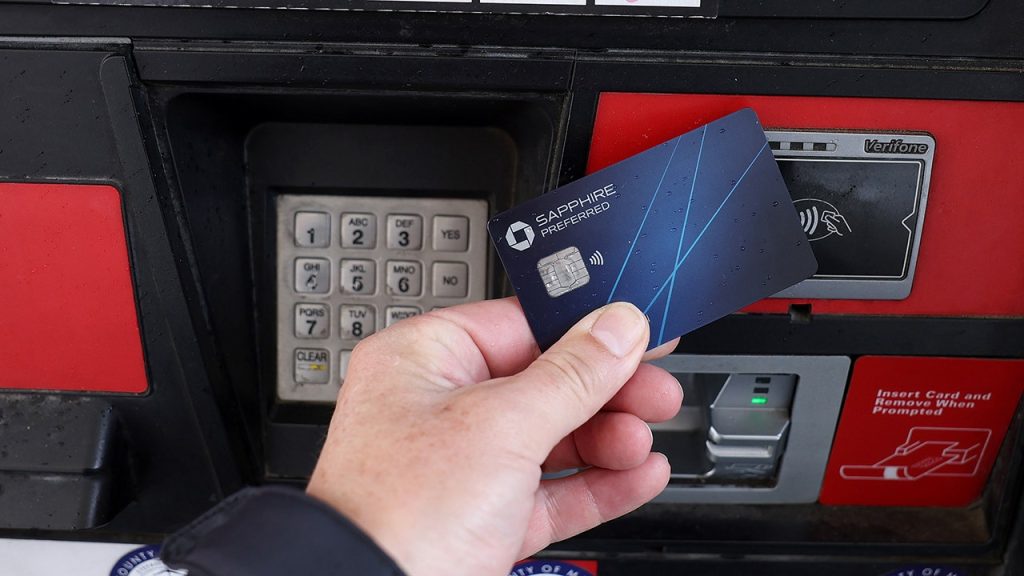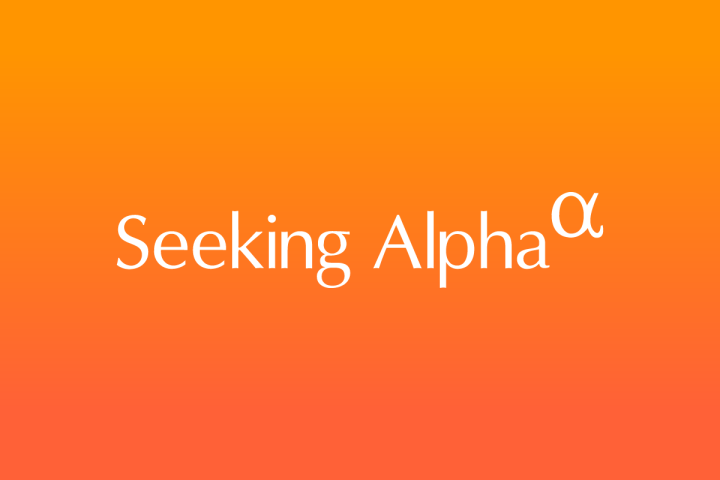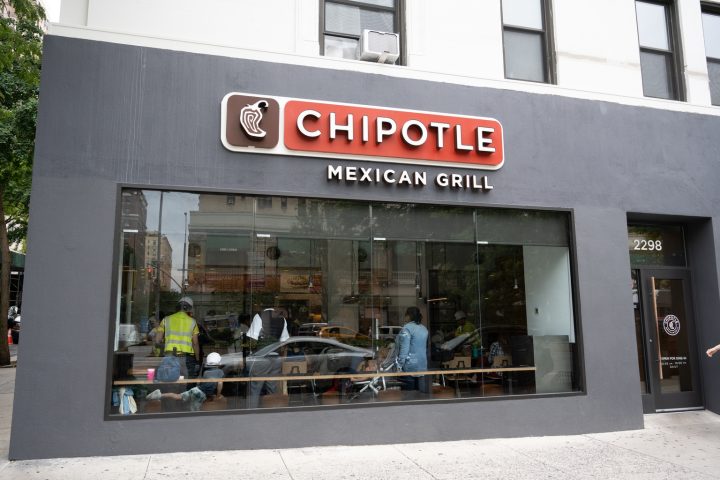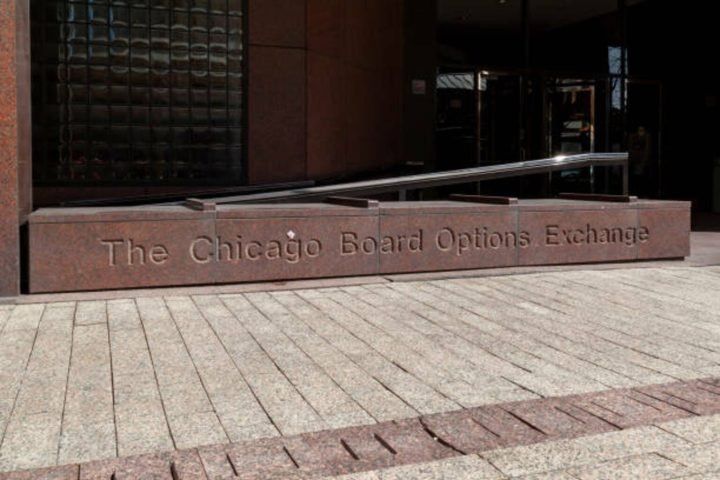Listen below or on the go on Apple Podcasts and Spotify
Trump does U-turn on tariffs, pausing on nearly all countries, but raising China rate. (0:16) Stocks explode higher, with Dow up nearly 3,000 points. (2:50) Bond yield rise forced Trump’s hand. (3:11)
This is an abridged transcript of the podcast:
Our top story so far, you may not be able to fight the Fed. And you certainly can’t beat the bond market.
In a massive U-turn, President Donald Trump let most countries off the hook from the large tariffs he announced last week, instead zeroing in on an escalating battle with China.
And stocks are rocketing higher, with the S&P 500 (SP500) up about +8%, the Nasdaq Composite (COMP.IND) up +10% and the Dow (DJI) up +7%.
Mohamed El-Erian, adviser at Allianz, says: “Up to an hour ago, there was a debate on what would convince the US Administration to opt for some type of pause on tariffs.”
“Would it be Congress, the President’s advisors, business leaders, the legal system, markets, or something else? We got the answer today: It’s the government bond market–particularly, how close it gets to the line that separates wild price volatility from market malfunctioning.”
Facing a big selloff in stocks and (more importantly at this point) a persistently big rise in Treasury yields when part of the plan was to get rates down, the White House went from declaring no exemptions, no pauses and negotiations one country at a time to eliminate every trade deficit to a 90-day pause with tariffs dropping to 10% on the majority of the countries on the original list.
But Trump also boosted tariffs on China again, in response to an earlier move by Beijing.
“Based on the lack of respect that China has shown to the World’s Markets, I am hereby raising the Tariff charged to China by the United States of America to 125%, effective immediately,” Trump said on Truth Social.
The president said other countries had called U.S. federal agencies such as the departments of Commerce and Treasury to “negotiate a solution to the subjects being discussed relative to Trade, Trade Barriers, Tariffs, Currency Manipulation, and Non-Monetary Tariffs.”
“These Countries have not, at my strong suggestion, retaliated in any way, shape, or form against the United States,” he said.
“I have authorized a 90-day PAUSE, and a substantially lowered Reciprocal Tariff during this period, of 10%, also effective immediately,” he added.
Earlier on Wednesday, Beijing retaliated against U.S. tariffs of 104% by raising its tariff rate on imports from the U.S. to 84%. The world’s second-largest economy called the American trade barriers “a mistake on top of a mistake.”
There is some vagary in what countries are included in the pause.
Robin Brooks, senior fellow at the Brookings Institute, says: “This trade war was really always about the US vs China. The US made a strategic error by picking fights with everyone, instead of just focusing on China. The 90 day pause fixes that and is thus very good. It also gives Xi an off-ramp if he reverses China’s retaliatory tariffs.”
In trading, the bulls charged immediately.
Among the biggest gainers in the S&P 500 were airlines and chip stocks, up more than 20%. Sherwood News notes that Broadcom (AVGO), Nvdia (NVDA), Microsoft (MSFT), Super Micro (SMCI) and Palantir (PLTR) are recouping all of their post-tariff losses.
Dollar stores, supermarkets, fast food chains and dividend plays struggled.
But bond trading is still not following the script. Treasury yields are off their highs but still elevated. The 10-year yield (US10Y), which had neared 4.5% overnight, is still above 4.4%. The 2-year yield (US2Y) is near 4%.
So, having been burned before, traders may be wary about whether new tariffs could be just around the corner.
Right before Trump’s announcement, The Treasury Department’s auction of $39 billion 10-year notes drew surprisingly strong demand.
The auction’s high yield of 4.435% came in significantly below the when-issued market yield (also known as the snap price) of 4.465%. That denoted a trade through of 3 basis points, which is tied for the second-best on record.
Wedbush analyst Dan Ives says: “The pressure on Trump took on a life of its own, and the eye-popping rise of the 10-year yield was ultimately too much to hold his line on the self-inflicted tariff slate unleashed at midnight. Now expect massive negotiations across the board – China the wild card for US tech sector.”
Kathy Jones, chief fixed income strategist at Schwab, simply said: “Bonds rule.”
Read the full article here
